Living Our Practices Submissions: May 2022
Thank You for Joining the Conversation!
“Living Our Practices” contest explores our Cultural Pillars and Practices
A big “thank you” to everyone who submitted responses in May’s contest. Check them out!
We asked two questions: “Which of the 8 Cultural Practices are you already practicing?” and “Looking to the future, which of the Practices do you think are most important and why?”
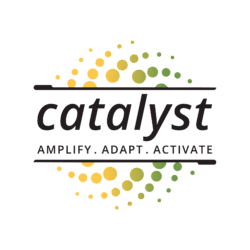
Heartland Sales Leadership Team (Agribusiness)
The Heartland Sales Leadership team is currently prioritizing the Empowering our People cultural pillar. We are partnering with employees to ensure they have the training, resources, and support to be successful. We are helping connect them with L&D, LMS, and our Advanced Agronomy classes. This roles directly into ‘Bringing our Best of WE to Customers’ – in order to do that, working as a team, and ensuring people have clear expectations for success allows our team to work together. We are also looking to continue supporting the pillars of “Operating with Excellence” and “Personal Accountability” – team work is essential and helping others out to ensure success is essential. Holding ourselves to high standards is essential. The future is BRIGHT!

Heartland Regional Process Managers (Agribusiness)
The Heartland Regional Process Managers are excited to focus on People Development and Supportive Leadership within the “Empowering Our People” pillar. This new role of Process Managers, allows us as a leadership team to support people and the processes they complete in a whole new way. We understand the value of giving people to be the tools to be successful in their jobs and the work they are doing.
For the future, the Heartland Regional Process Managers are looking toward supporting the practices of “Operational Consistency & Customer Focus” – there is so much value in creating a culture of high-level value for customers and that comes through our teams working together, and having clear expectations for operational expectations, to bring our Best of WE to Customers.

Heartland Operations Leadership (Agribusiness)
The Heartland Operations Leadership is providing support to the various pillars. Empowering our People is the foundation to which all other things can be successful. Building up our team with training, clear expectations on roles, and how to operate in a way that supports Bringing the Best of WE to Customers, Holding Ourselves Accountable, & Operating with Excellence. We are making progress towards providing data to support these efforts.
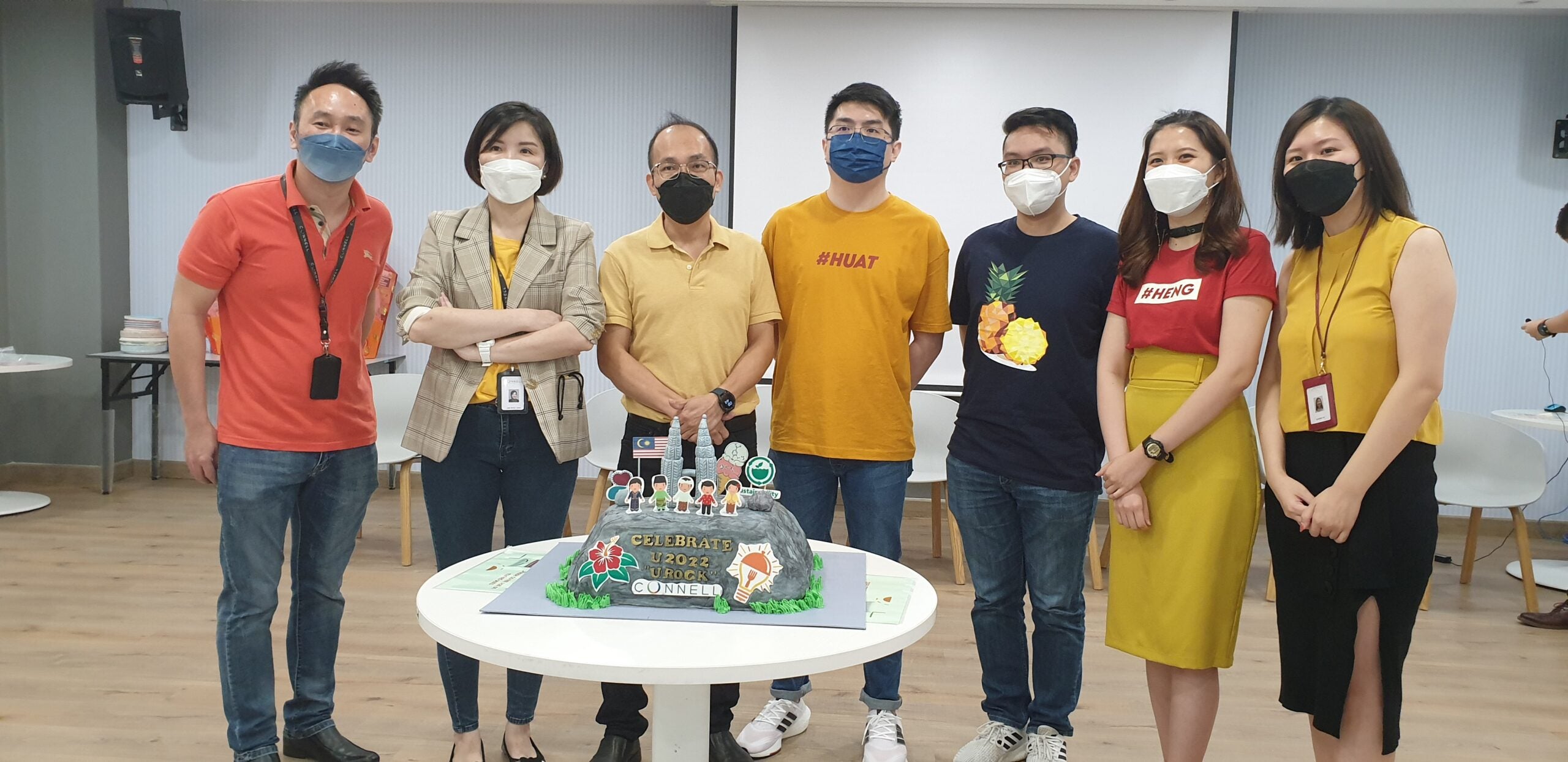
Vivian Tan (Connell)
I would like to give a shout-out to my superiors- Lee Hong Leng and Lim Chit Kuen for their Supportive Leadership.
It is a challenging time being a sales person as we continue to be pressured by supplier’s rising raw material,shipping costs and managing customers’ expectations. I had great support from both superiors who would even take their time to have a 1-1 session to analyse customers’ behaviours to better relay price increase to price-sensitive customers. When it comes to problem-solving, I was often given some insights which helped me see things through new perspective, leading to a better and effective resolving methods.
Hong Leng and CK went beyond being a good mentor at work. Few months back when I was on maternity leave, I was reassured that my work will be taken care of and told to get sufficient rest and much needed sleep. I was given full support and even helpful parenting tips!
I am eternally grateful to be under the wing of supportive leadership!
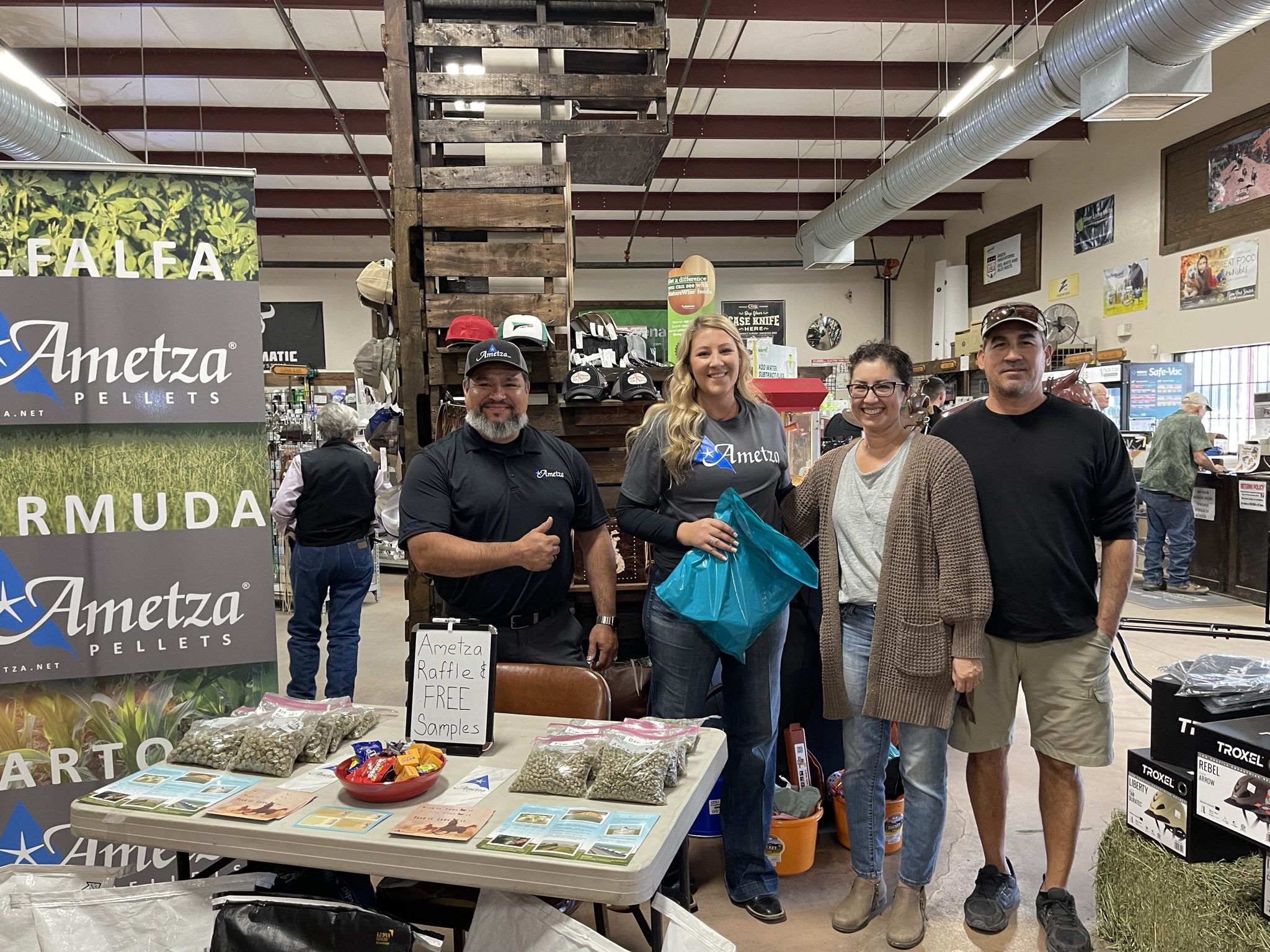
Christopher Gonzales (Nutrition)
Even though life is very fluid, consistency will cause steady endurance and yield expected results.
This is why I believe Bringing the Best of WE to Customers, via Customer Focus, is one of the 8 Cultural Practices I am already practicing. May has been an interesting, and rewarding, month for me. In the midst of uncertainty, I have realized customers depend on confident decision making, and solution oriented behavior, from their vendors, such as Ametza Wilbur-Ellis. Building customers up by offering our support to help them prosper as a company, will only build us up, in return. I was told this many times, in various ways, by customer staffed employees, “You are the only vendor that I have seen here in the store, that will take time to talk to us, and our customers, about their product. You are like family and this is why I can confidently push your product in front of others.” Having our customers wearing our brand is great, but having them accept us into their cultural family because they believe in us, and trust us, is priceless.
Even though I believe all 8 Cultural Practices are are important, looking to the future, the one that I currently feel is the most important to exercise is Holding Ourselves Accountable, via Performance Transparency and Personal Accountability. It does not matter what kind of socioeconomic status a person holds, weather poor, rich, or somewhere in between, if they are a plain Jane or an extravagant Marvin, most people have the ability to detect sincerity and honesty in a genuine and truthful person. Failure is a great ingredient for success, because somewhere down that path of imperfection, we all have made adjustments to move us closer to the path of accomplishment. I would like to see transparency as a strong indicating pillar, in my life, that will go before me in all things I do, whether applied to business or personal relationships, that will show anybody I am an imperfect human that strives for perfection in an honest, and trustworthy, manner. I am not afraid to show a customer that I had made a mistake, or that my product may have been compromised somehow, because I am confident that whatever the concern may be, I can make it right with integrity and determination. This month especially, I leaned on even more, the need to be accountable. Being in New Mexico, associating with customers, I was made aware of how detrimental the wild fires were, especially in Mora, NM. It would have been non-accountable for me to turn a blind eye to the hardship NM residents were enduring when I knew we could help somehow. Therefore, I contacted my superior, Gerardo, who I genuinely appreciate working with, and I let him know my concerns and a possible solution to help, which would be to donate Ametza Pellets horse feed. Gerardo agreed, without hesitation, and the rest is brilliant and fantastical history. Accountability is not a weakness, but a strength in my life, and transparency allows a person to see it.

Barb Davis (Agribusiness)
I feel the most important practice is “Continuous Improvement” because if we don’t continue to improve on a daily basis we are failing our company, customers and co-workers. I strive to make an improvement on a daily basis while performing my work duties. This makes me feel good that I am striving to improve and the end result will benefit our company, co-workers, and customers. By practicing continuous improvement I provide a better service to everyone. Continuous improvement is vital to maintaining our customer base and attracting new customers. Continuous improvement will promote trust between co-workers and ultimately be a positive for the company. It doesn’t matter if the improvement is small or HUGE, it makes a difference.
My second choice for important practices is “Personal Accountability”. I strongly hope that everyone can practice this in the workplace. I feel that accountability makes you a better employee and person and benefits everyone that you have contact with on a daily basis. As employees, how we interact with each other reflects on the customers and ultimately affects the company progress and prosperity. Personal Accountability is BIG. As a Wilbur Ellis employee, You CAN make a difference!

Mary West (Agribusiness)
I am empowered by my team of colleagues through knowledge sharing. In our weekly End to End, Business Processes and Ag Center of Excellence team meetings, support is provided through collaboration, effective communication and issue solving, at a group level. Information gathered is then shared to our branches and ultimately provides a strong knowledge base of new and useable information and tools so branches can succeed by providing our customers with a high level of service. Each of us provide an important piece to this group and we all bring a slightly different perspective that is celebrated and encouraged. This group or team approach make us all stronger and is part of it’s success. With it’s direction and clear intention, this team exercises all the Cultural Pillars & Practices.

Jackie D’Souza (Corporate)
I believe that Performance Transparency is so important for a team to thrive and grow. It allows you to celebrate your wins and improve in areas needed. On the fleet team we did a full Tap Root Investigation on the vehicle ordering process done in 2021. With the all of the hurdles in front of us we executed many parts extremely well, but there were a few areas that we found that needed to be improved. We presented our wins and improvement plan to leadership. We then began to make changes in the process to ensure that we improved on the process for 2022.
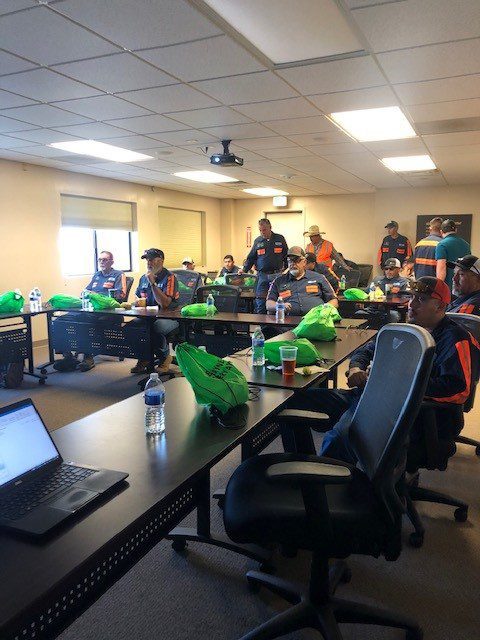
Russ Stowers (Agribusiness)
Supportive Leadership – Show up everyday, and lead by example.
Operational Consistency – Annually, the Shafter Ca, location holds multiple hot weather, and hydration trainings through spring and summer. The teams are supplied with hydration equipment, and knowledge to protect themselves and teammates.

Gauri Kshirsagar (Connell)
“Which of the 8 Cultural Practices are you already practicing (please tell us how)?”
As someone who is less than 2 years old in the company, I would like to share on how I have witnessed the Cultural practices around me.
1. Empowering People – Supportive Leadership
From day 1, I have been lucky to have a super supportive Leadership be it my immediate Supervisor or the larger HR team and of course, Azita. I have been given the autonomy to make my own decisions and follow through while still being guided and given the help I have asked for. I think none of the people I have worked with have a term called ‘micro-management’ in their dictionary! It keeps me accountable yet independent. I also feel empowered when I am allowed to my best work from where I want to. I hadn’t been home for over 2 years due to the pandemic and Alex was totally supportive and empathetic and gave me the flexibility to work from home for a considerable amount of time.
2. Operating with excellence – Knowledge Sharing
Connell is the 5th organization I am working for in my career so far. But it is also the first where I have witnessed open, collaborative and genuine knowledge sharing. Nobody holds their cards close to their chest! Be it the HR Managers, the IT team or the COP team, every single person I have reached out in the way of my work has been prompt, responsive and believes in collaboration. They are all ready to share what they know, dig deeper into questions they don’t have answers to yet and then come back and share what they have found out proactively. Integration between HR systems and IT systems, streamlining or HR processes with other organization processes has been smooth because everyone involved brings their best ideas to the table and all of us walk away having learned something new each time.
“Looking to the future, which of the 8 Practices do you think are most important – and why?”
I truly believe that all practices go hand in hand and we cannot have one regarded more important than other. But if I have to choose, I will say Continuous improvement. Be it as a person, as a team or an organization, the only way to keep moving forward is to be better than yesterday. We need to constantly upgrade ourselves in terms of our learning, our sharing, our mindset and keep doing every little thing that will make us a better version of ourselves and make our organization better than it was yesterday.

Jay Rajgor (Connell)
According to me Knowledge Sharing is key to Operational Excellence.

Kristen Lee (Corporate)
Which of the 8 Cultural Practices are you already practicing?” (Please tell us how.)
Upon considering the eight Cultural Practices, “Personal Accountability” was the one which stood out to me the most as something I strive to incorporate into my daily work life. Whether or not each of us has a manager or supervisor who directly oversees our duties, I believe it is crucial to hold ourselves accountable to ensure that we perform at our best every time we put our hands to the plough (literally or not). Oftentimes, it is only each of us who is most aware of the various components of his or her job and the balance of priorities as they shift over time. It would follow then, that it makes sense to keep our own selves on task from day to day, instead of leaving it to others to keep us in check.
As someone who can quickly get absorbed in each day’s specific demands, I find it useful to regularly pause to think of the longer-term projects on my plate. As simple as it may sound, I always try to look past just that day or week on my calendar to ensure that I have a full-orbed view of not only the smaller, closer-range tasks which I need to accomplish, but also ones which may require more time and effort to complete. It is all too easy to lose sight of a “we-need-to-do-this” comment in a meeting or fail to take action on an “I-should-do-that” thought. However, I have found that if I can keep track of my various responsibilities by seeing where tackling them might fall concretely on my calendar, that helps me to stay accountable to myself and ultimately, serve others better.
Kristen Lee
Executive Legal Assistant
San Francisco, CA

HEIDI MOORE (Agribusiness)
One of the Cultural Practices I am currently using is continuous improvement. We are looking at current KPI’s in COP Metrics and using that information to dial in and takes steps toward making improvments. Like Processing Sales Orders, we are focused on that in the Heartland because it improves inventory visibility in AVN so that our Sales team is seeing a more accurate available inventory. Some are a quick easy fix while others take a slower, steady path to resolution. As long as we are headed in the right direction and not going backwards we are continuously improving.
I also believe that continuous improvement is one of the most important because it feeds into what I think is our number one practice, Customer Focus. If we lose sight of the customer what are we doing this for?

Jinghong He (Agribusiness)
1. I’m already practicing all of them, maybe more on some than the others. This year my focus is more on the continuous improvement, customer focus, and operational consistency. I’m taking CPE lessons (for CPA) to keep up with the knowledge and requirements, absorbing WE specific knowledge in daily work and trying to provide my best performance.
2. Looking to the future, I think supportive leadership and continuous development are critically important. They are the basic of development of people’s talent and enterprise prosperity. Continuous development is how we survive and thrive. And that cannot happen without a supportive leadership. Even though I’m not in the management team now, I’d love to see and try to practice as much as I can for a healthy and harmonious work environment and career advancement.

Wendy Joy (Agribusiness)
Continuous Improvement:
In order to continue to grow as an employee and company, we must constantly be re-evaluating what and how we approach our work. It is important not to just do things as they have always been done. Continually be thinking: Is there a better, more efficient way to accomplish this task? Does what we are doing make sense? Can we reduce costs or save time?
Don’t be afraid to think outside of the box and bring new ideas to your team.

Steve Simon (Agribusiness)
I’m one of the newest employees in the Wilbur-Ellis Agriculture division. I’m the newest employee at the Clarke Branch in Boardman Oregon. I work with a great group of people under Shirley Purcell. She is very supportive and my coworkers are all very receiving and willing to help where they can. I just wanted to say how happy I am to work at Wilbur-Ellis as the Customer Service Representative 2.
My Cultural Practices:
Customer Focus: From my training in customer service here and past jobs I have learned to treat people how they would expect to be treated. With respect, sympathy and common courtesy. The happier I sound on the phone the better their phone call will be. They will want to come back for more business.
Continuous Improvement: Since I’m new, I am doing this every day to try to become more efficient. When I do that it makes my coworkers jobs and mine easier. I’ve been writing notes on how to do each function of my job better.
Performance Transparency: I always try to be honest when speaking with customers and coworkers.
Personal Accountability: I always try to push myself to do better and work honestly with others. If I make a mistake I am willing to confess and make it right.
Operational Consistency: I try to be consistent in the way I treat customers, coworkers and how I do my job.
Looking to the Future:
I think they are all important but will narrow it down to a few.
People Development: With the range of different backgrounds of people that work for a large company, it is important to train with the same goal in mind. Then allow the different backgrounds to contribute their way so the culture is stronger.
Supportive Leadership: If you want the company to succeed then you need leaders that understand the needs of the employees they are responsible for. When employees feel supported they do better work, are safer and look out for each other.
Customer Focus: If we take care of our customers they will come back and bring more customers to our business.

Adam Balk (Corporate)
Operational Consistency is very important to the success of an organization. When the company is able to perform the same task at a high level, over and over across the organization, it helps contribute to customers satisfaction, regulatory sustainability, and employee understanding. It also aids in transition when there is postion changes or employee turnover to ensure that business keeps moving forward.

Kimberly Dahlberg (Agribusiness)
Personal Accountability is a big one for me. I have been a Wilbur Ellis employee for 20+ years, the past 7 of those years in a management role. I have been told that I am a natural leader but I felt that I struggled since I didn’t feel I had enough tools in my toolbelt to manage / supervise others effectively. When the Learning & Development team announced they would be offering Manager / Supervisor training, I immediately signed up. I made it a top priority to adjusted my schedule so that I could attend the trainings, do the homework and actually put in the effort to incorporate what I learned into every day practice. I want to do everything possible to get the most out of this amazing opportunity put together for us. I am grateful to have new tools to help me be a better leader. And you can be sure when the next session is announced, I will be among the first to sign up.

Derek Simons (Agribusiness)
I do not get to interact with our end customers in my position, but one thing I have been trying to do is see how I can serve the team that does as they are my customer. Trying to provide them with everything they need to get up to date information, status on product, or anything that will give them the ability to show our end customers the best Wilbur Ellis we can be.
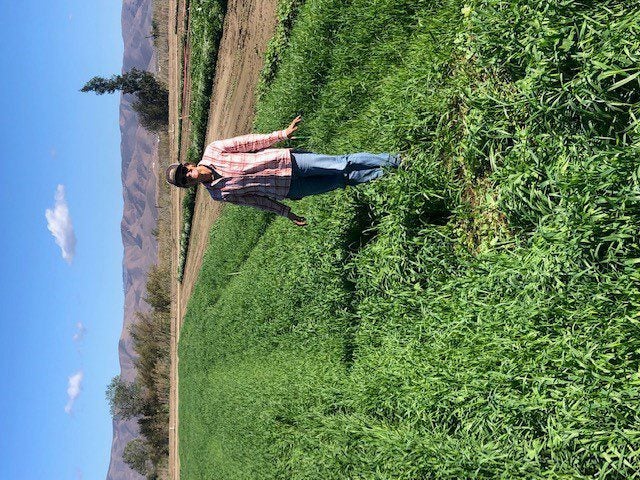
Gina Colfer (Agribusiness)
I believe I am practicing Continuous Improvement within our Cultural Pillars. In the agricultural sector right now, if we are not practicing this, we will get left in the dust. There are so many new technologies and products, if we are not continually striving to learn, then how can we bring new ideas to our growers?

Mallory Robert (Agribusiness)

Lara Shuler (Agribusiness)
Customer Focus is and will continue to be the most important pillar for Wilbur Ellis. Every action we take is with the customer in mind. The salespeople meet with our customers and find their needs. Our procurement team obtains our customer’s needs. Our office staff processes those orders for the customer, and our drivers deliver those customer needs. There are so many other supporting roles that help to benefit the customer. When we focus on the customer, excellence comes naturally.

Jeff Barnes (Nachurs)
At NAS one area we really focus on is operational consistency. This is important for several reasons. Our customers expect a quality product every time. As well the product needs to be delivered on time. Their business depends on this. A grower going into the field can’t have product that hasn’t stored well or is out of spec where it can harm the plant. An industrial customer needs the product to be in spec and delivered on time or they run the risk of having their operation shut down. This is also how we separate ourselves from the competition and gain a competitive advantage. Our brands (Alpine, Nachurs, and NASI) have great reputations in the marketplace for quality and reliability that has been built up over 75 years. For these reasons NAS has always emphasized operational consistency as we need to deliver a quality product on time – Every time!
Going forward NAS also feels operational consistency is the most important thing to focus and improve upon. Being a chemical company, we have significant exposure to EHS risks if we do not operate properly every time. We are implementing GPS to improve our safety practices as well as Management of Change (MOC) to minimize the risks of environmental or safety accidents. It only takes one time of not operating properly to have a severe accident – and nothing is more important than the safety of our employees. For this reason, it is important to raise our level of operations even higher than it is today – and to do so consistently!
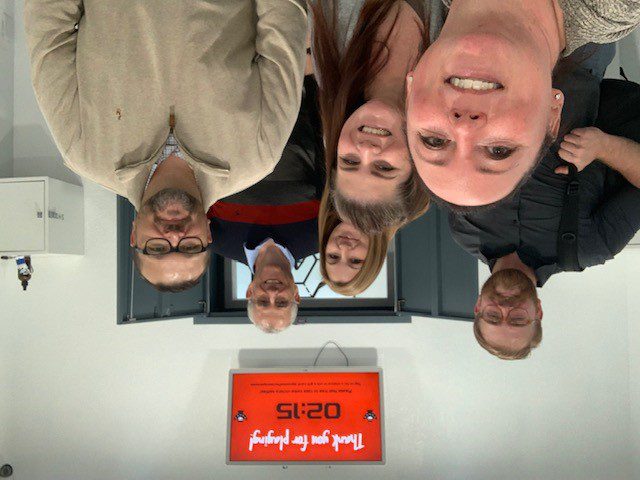
Jocellyne Fernandes (Agribusiness)
People Development – Training and teaching new team members each day, enjoying the fellowship of the experience.
Supportive Leadership – Initiating new conversations and building trusted relationships with new people in our organization as often as possible.
Customer Focus – Believing that data quality is the star player in functional support, allows me to help my customers (locations, and I.T.) effectively.
Performance Transparency – Clearly documenting Projects and Progress, presenting DGO efforts to leadership teams and learning from mistakes made, receiving hard-to-hear feedback and pushing forward to achieve strategic goals.
Personal Accountability – I use the DGO Page in WEconnect to track issues and project progress. I use Teams to communicate with my DGO Team Members and to post agendas for upcoming meetings. I follow up the same meetings with notes to the attendees.
Operational Consistency – Documentation of processes and adherence to the business processes as they evolve keeps me on my Ps & Qs.
Knowledge Sharing – Just wrote an article (with Jeff Hershberger’s help), for Ag COE’s quarterly newsletter, speaking to the Idera database and how DGO is creating independence in accessibility to the data that grows our business. We are always adding to and developing Idera. I hope to be able to contribute in this way, more often.

Jeff Hershberger (Agribusiness)
People Development – I am thoroughly enjoying being a Mentor in the Program.
Supportive Leadership – Monthly Fireside chats with my direct reports.
Customer Focus – uhhh… NOBODY wants me to talk directly with our customers! 🙂 But YOU are OUR customer.
Performance Transparency – Data Governance Office Value Roadmaps developed to show our direction and results.
Personal Accountability – I use MY TIME to track my time off and appointments, and require my team does the same.
Operational Consistency – Data GOVERNANCE Office – Consistency is in our DNA!
Knowledge Sharing – DGO shares its knowledge in IDERA.

Mark Ripato (Agribusiness)
– One area of many that I believe represents Bringing the Best of WE to Customers is the CropSights effort. The most exciting part of that for me is the preemptive, problem identification and resolution dialogue that occurs with the customer. It sounds simple, but is often overlooked within our industry. The discussions happening around the organization about CropSights and the potential it could present is extraordinary to watch! Thanks to all involved.
– Each of the pillars and practices are important for our future success, but if I had to anchor into one of them, I would pick personal accountability. We each need to engage in defining, developing and understanding our strategy. Then, own our piece of it when we are ready to execute. If we get that right, the rest will take care of itself.

Russ Stowers (-- Select an option --)
Which of the 8 Cultural Practices are you already practicing?” (Please tell us how.)
Supportive Leadership-When teammates feel victory, leaders highlight accomplishments.
When teammates feel defeat, leaders take ownership.
Operational Consistency-Accountability and reliability should be viewed as core value minimum standard, not an accomplishment. Show up for your team everyday.
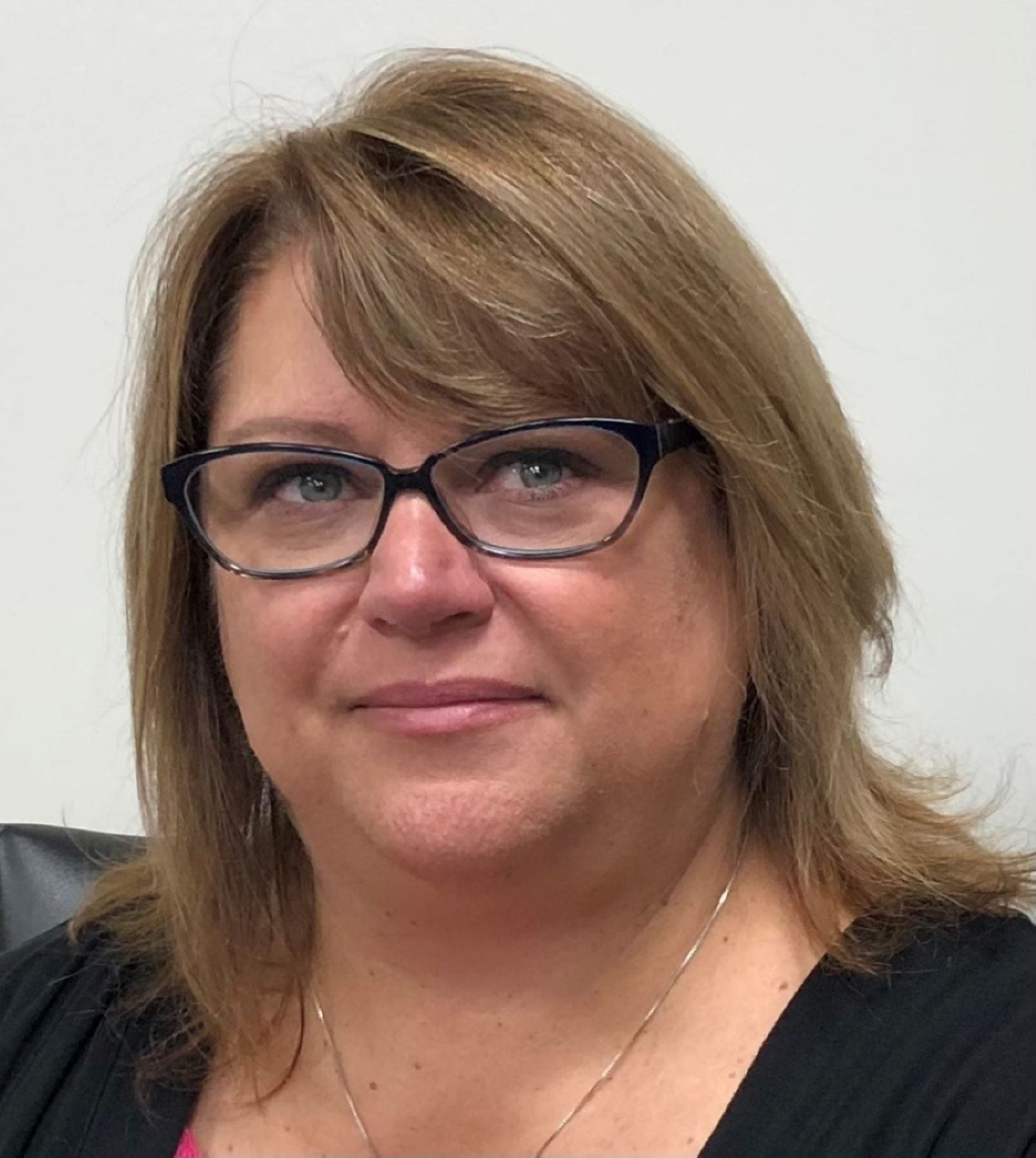
Tracy Genest (Nutrition)
I am always working on continuous improvement to bring the best of WE to our customers. On a daily basis I deal with our customers regarding their account. I work to ensure they have all the information they need to settle their account, will help make adjustments to ensure the information flows freely between WE and the customer and to help answer any other questions they may have. When you continue to support your customers and go the extra step when needed that will be rewarded with continued business.
I believe one of the most important pillars is People Development. If we continue to strive to ensure our people are well trained and educated, as well as working on hiring the best we can, we will continue to keep WE in the forefront in the Agricultural industry.

Don Sauve (Corporate)
1. I’m already practicing “Knowledge Sharing” within the I.T. group. While I’ve only been at W-E for about 8 months, it was clear from day one that everyone in our group willingly shared what they knew to help each other succeed.
2. I think that Customer Focus is the most important of the 8 Practices, because we cannot succeed without customers. We should always strive to meet their needs (and exceed when possible).
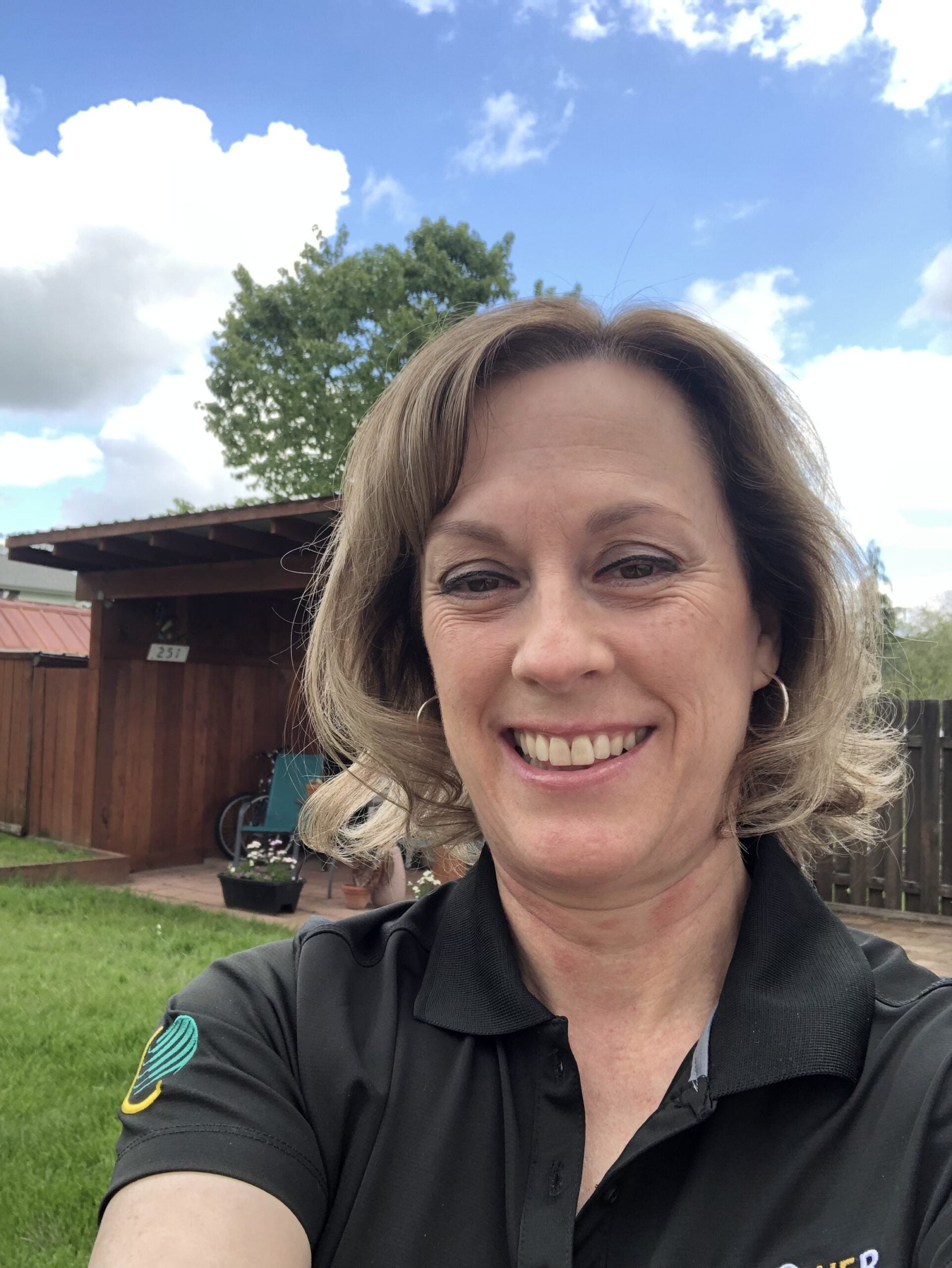
Julie Magnuson (Nutrition)
While each of the 8 Cultural Practices is very important, I first practice Supportive Leadership. My team and I have been working from home since March 16, 2020 so this practice is especially important when you are not physically present.
I practice Supportive Leadership by:
*Holding regular meetings with each of my team members.
*Being available for questions or when they need some direction.
*Creating a safe environment so we can have open and honest dialogue with each other.
*Providing clear expectations, training, and feedback.
*Actively listening to them.
*Providing encouragement along the way.
I believe when you put people first and do the things listed above, your team will thrive, the work will happen, and the company flourishes.

Ty Zorn (Corporate)
1.) I am currently practicing continuous improvement in my day-to-day activities. Continuous improvement, to me, is when you actively engage in an attempt to make process improvements. I am fairly new, so when I am given a new task to complete, I immediately identify the fallacies in the process and find an alternative (if necessary) to complete the task more efficiently.
2.) I believe the most important Practice is “People Development”. Investing time/resources in our people will return dividends in the long run. It is also important to find quality people for specific roles. An important concept to keep in mind when developing people, is how to successfully connect/communicate with them. Adjusting your communication method is a valuable technique that helps better relay a message to your audience. Some people react/learn better to visuals, while others do better with physically going through the motions.

Hugo Garcia (Nutrition)
Bringing the Best of WE to Customers – This is the cultural pillar I believe I have been practicing, for the Angleton, Texas location. We recently had a Purina Customer audit this year, all the improvements we have done to our FSQR program and the commitment the employees have put into as well has paid off. Jennifer Hines (Auditor) noted “very impressed by the facility’s progress from the previous audit and am excited by the teams commitment and knowledge”. With this being said from our customer makes me believe we are bringing the best to our customers.

DONALD CROWE (Agribusiness)
Supportive Leadership/People Development:
By questioning each department or area’s needs are to improve working conditions. We have made improvements in safety and appearance of the Location. Warehouse ramp was uneven and needed improvement to reduce forklift damage and cargo transit. The truck scale had a bad step design and an unsafe fall/trip hazard. These were improvements submitted by location employees and are encouraged to look for safety or process improvements on an ongoing basis. Employees feel like they have input and can improve location conditions and take ownership of their area(s).

Denise Smutny (Agribusiness)
Empowering Our People: If we don’t empower our people, we cannot grow. It is so critical to listen to the the people doing the work, what they bring to the table, how to make processes and the company better. The best ideas come from the people doing the work as well as those people brought in from outside the organization into new roles who are bringing ideas and improvements with them. Empowering people means letting them take risks and learn, always give merit to an idea even if you don’t think it will work because it might. There is typically more ways to complete a task, process, or engage a customer or vendor and listening to our team members ideas and making sure there is a safe environment to share those ideas is critical and the path to the future.

Denise Smutny (Agribusiness)
Today and every day I hold myself accountable for my work and the work of my team. As a newer leader to Wilbur-Ellis there is much to learn and mistakes can be made. I believe it is critical to hold oneself accountable to be able to learn from your mistakes. Everything is fixable, maybe challenging to fix, but learning is such an important element for being accountable to yourself and others. I believe that when making decisions, make the best decision possible with the information you have and be willing to be flexible if that decision was not practical, make a new decision and move forward. Being accountable to me means taking some risks, learning and growing.

Brittney Iiams (Nutrition)
1. Currently I am practicing empowering our people. As part of my own goal to have a greater understanding of the FSQR department and all the roles that come along with it, I am diving into new tasks in order to be more well rounded and a greater asset to my team.
2. Looking into the future, Continuous improvement is one of the most important practices. There is always room for growth and improvement in all aspects of the life and in a company. I think we should all strive to be a little better than the day before, that allows growth both as an employee and personally. If we stop striving for improvement we stop allowing ourselves to be the best version of ourselves that we can be.

Amanda Scheving (Agribusiness)
I feel that I am already Holding myself accountable and Performance Transparency. As a newer employee, hired May/June of 2021, I have set a standard for myself to learn my position and stay accountable to that. I am still learning and continue to find opportunities to improve my performance and hold myself accountable throughout every day.
All of the 8 practices are important looking to the future. I do believe that Operational Consistency and Knowledge Sharing are very important due to the difficulty of finding employees and getting them trained in as quickly as possible. It is difficult to keep current employees and retain new employees when the operational consistency is inadequate. Also when it comes to knowledge sharing, if your employees have tribal knowledge that they have just learned overtime, that more than likely doesn’t get passed on to new employees. This makes it difficult for new employees to be successful if veteran employees don’t share that knowledge and just expect new employees to “figure it out” .

Lisa Hernandez (Agribusiness)
I believe we practice all areas of the 8 Cultural Practices at our branch. The areas we probably practice the most is Empowering Our People. At our branch we do our best to help and develop our people. We are always learning and trying to teach those around us best practices. At our branch we have Supportive Leadership. Our manager is there to help us each and every day and if we do not know something we are not afraid to turn to him for the answers to our questions.
Looking to the future, People Development is the most important of the practices. If the people in your company are developed and continue to develop the rest of the cultural practices will more easily fall into place.

Michelle Leal (Agribusiness)
“Which of the 8 Cultural Practices are you already practicing?” (Please tell us how.)
In my current role as Customer Support, I am already practicing people development by constant training and check-ins with the new additions to my team. I have an open forum when it comes to my knowledge and time with coworkers. If they need help with something they are tackling I will shadow in and work through their issue with them only offering guidance when needed, or if I am working on something they haven’t seen yet I will let them shadow me, and ask questions along the way. With that, I feel like continuous improvement plays a big part in how I approach people development because by working through training scenarios and constant communication we are always evolving as a team and individually.
I take a lot of personal accountability for my actions in my role. I am not afraid to speak up if I have made a mistake. No one would learn or progress without failures to improve from, with the structure of my supportive leadership team there is the ability for my group to function with all of the cultural pillars and practices in mind already.
There is not a part of me that is fearsome or leary to practice any of these pillars in lue of repercussion.
“Looking to the future, which of the 8 Practices do you think are most important – and why?
”
I think that empowering the people we already have should be the main focus. Retention of the right employees is key to keeping teams, and organizations running optimally. By empowering the people, operating with excellence will trickle into play because you have built the dream teams by fostering trust and support within the employee groups. Customer care and focus improve when employees feel safe and appreciated, they are willing to learn more and apply themselves a little bit harder than if they don’t feel like this is the company that wants them.

Manuel Ramirez (Nutrition)
Even if I’m not a team leader/supervisor or in any management role, I always love to give support to my team by sharing all knowledge (soft skills or technical skills) in order to get better and perform more efficiently. I strive to focus on my customers and bring to the table the best customer service that Wilbur-Ellis is known for. Even with day-to-day challenges, I continue to improve and get better in each area professionally and personally speaking. I continue working on improving and always do my job with best performance and transparency. As it said, “if you don’t care about your people and customers, somebody else will”

Jose Luis Castro (Nutrition)
People Development and Supportive Leadership is one of the Culural practices we try hard to live on our daily duties, as a people manager is my responsibility to make sure that the right tools are there for each employee to suceed in their professional and personal needs on our company.
Continuous Improvement is something that will definetely want to develop in our team to make sure we are better everyday, even though it is on small steps that keep is thriving on the right direction of innovation to succeed for the next 100 years.